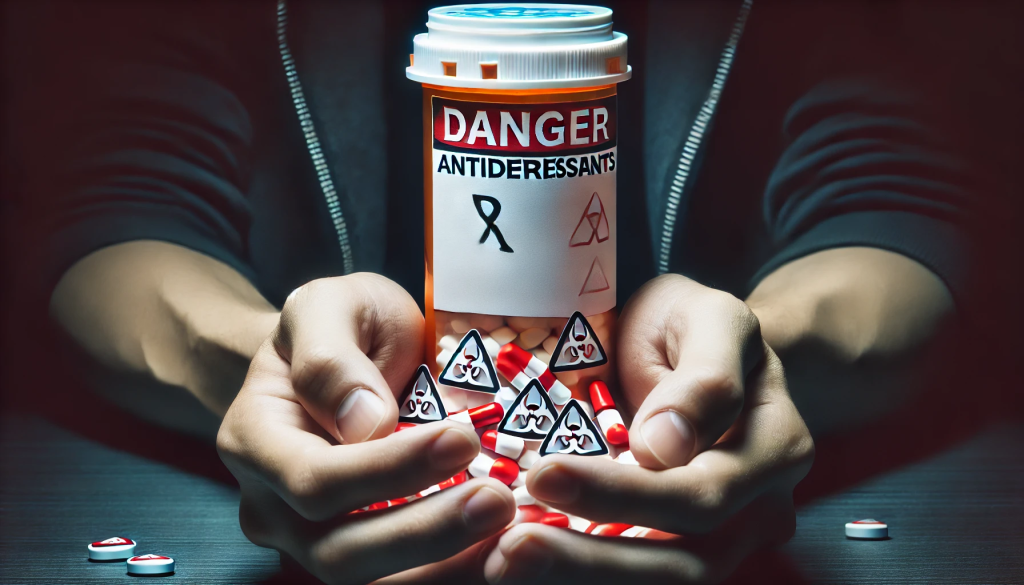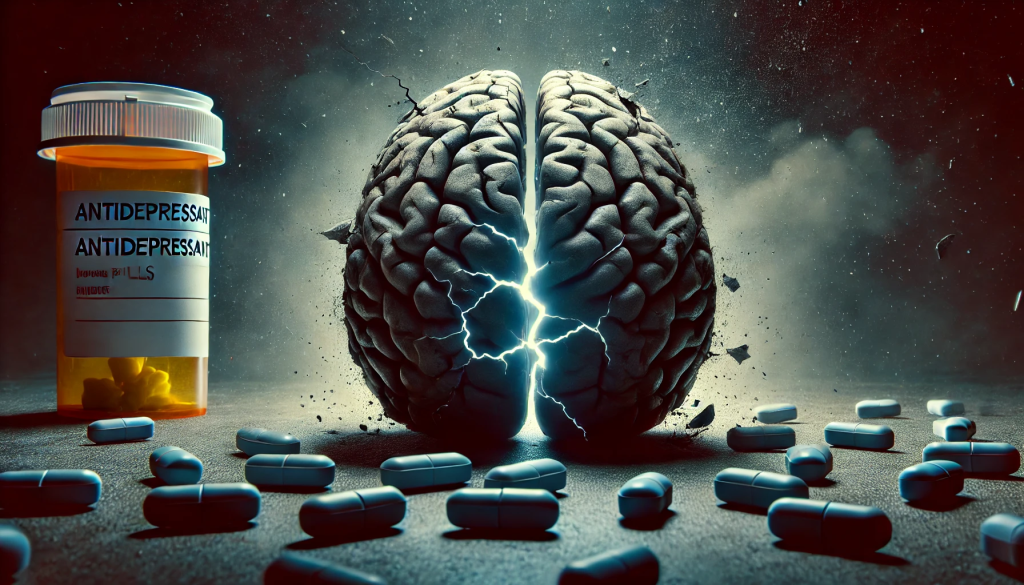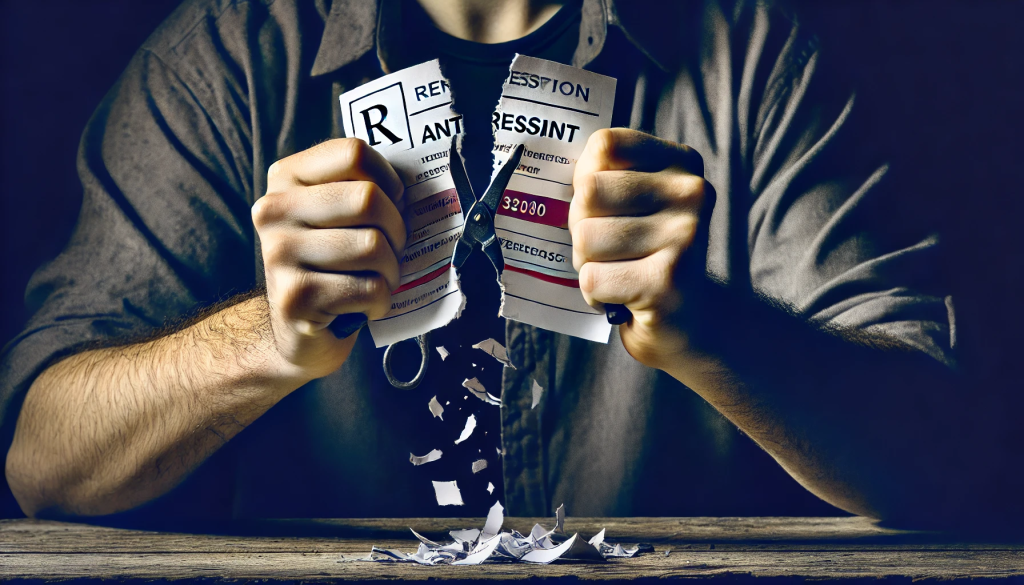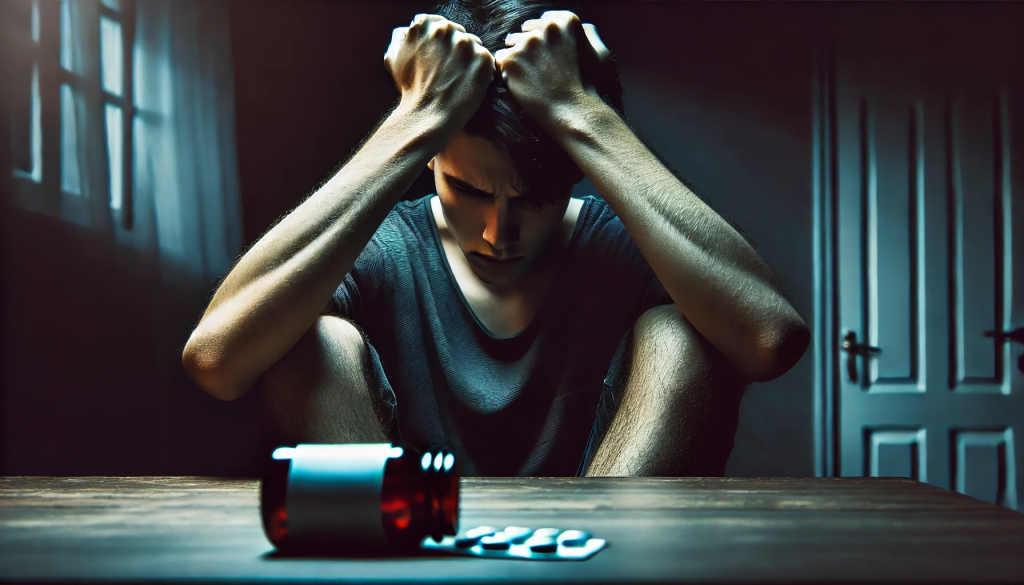When Depression Medications Become a Threat
In recent years, antidepressants have become a lifeline for millions of people suffering from depression, anxiety, PTSD, and other mental health disorders. But could these very medications be doing more harm than good?
Robert F. Kennedy Jr. (RFK) has sparked heated debates by questioning the safety of selective serotonin reuptake inhibitors (SSRIs)—the most commonly prescribed class of antidepressants. He claims these drugs are linked to increased aggression, addiction, and even violent behavior, raising concerns about their widespread use.
But are SSRIs and other antidepressants really as dangerous as Kennedy suggests? Or is this just another conspiracy theory against the pharmaceutical industry? In this article, we dive deep into scientific research, alarming statistics, real-life cases, potential side effects, and alternative treatments to help you understand the real risks and benefits of these drugs.
What Are SSRIs and Why Are They Controversial?
Selective serotonin reuptake inhibitors (SSRIs) are among the most commonly prescribed antidepressants worldwide. They work by increasing serotonin levels in the brain, which is believed to regulate mood, sleep, and emotional stability.
Most Common SSRIs in the U.S.:
| Brand Name | Generic Name | Approved Uses | Potential Risks |
|---|---|---|---|
| Prozac | Fluoxetine | Depression, OCD, Panic Disorder | Suicide risk, emotional numbness |
| Zoloft | Sertraline | Depression, PTSD, Panic Disorder | Sexual dysfunction, agitation |
| Paxil | Paroxetine | Depression, Social Anxiety, PTSD | Withdrawal symptoms, aggression |
| Lexapro | Escitalopram | Depression, Generalized Anxiety | Insomnia, nausea, weight gain |
| Celexa | Citalopram | Depression | Heart problems at high doses |
While SSRIs are often prescribed as safe and effective, Kennedy and other critics argue that their long-term effects and withdrawal symptoms are underreported.
The Alarming Link Between SSRIs and Violence: Fact or Fiction?
One of Kennedy’s most controversial claims is the alleged connection between SSRIs and mass shootings in the U.S.

📌 Fact: According to the CDC, the number of mass shootings in the U.S. has increased by 250% since 1999, and in 80% of cases, the shooters had previously taken antidepressants or other psychotropic drugs.
📌 2016 Swedish National Register Study:
- People newly prescribed SSRIs were 25% more likely to engage in violent behavior than those not taking these drugs.
- The effect was strongest in young adults aged 18-24.
📌 2023 JAMA Psychiatry Study:
- Adolescents and young adults taking SSRIs had a 43% higher risk of suicidal thoughts compared to non-users.
📌 British Medical Journal (BMJ) Study:
- SSRIs may increase impulsive behavior, which could contribute to violent tendencies.
However, a meta-analysis of 25 studies (British Journal of Psychiatry, 2020) concluded that in patients with severe depression, SSRIs reduced the risk of suicide by 30%.
⚠ Conclusion: While there is no definitive proof that SSRIs cause violence, some studies indicate higher aggression and impulsivity in certain patients, especially young adults.
The Hidden Dangers: Side Effects of SSRIs
Despite being widely prescribed, many patients are unaware of the full range of side effects associated with SSRIs.
Common Side Effects of SSRIs:
| Side Effect | Reported Cases (%) | Severity |
|---|---|---|
| Sexual dysfunction | 75% | Moderate to Severe |
| Emotional numbness | 60% | Moderate |
| Insomnia & fatigue | 50% | Mild to Moderate |
| Weight gain | 45% | Mild |
| Suicidal thoughts (in young adults) | 43% | Severe |
| Withdrawal symptoms | 30% | Severe |
| Increased aggression | 25% | Moderate to Severe |
🚨 Withdrawal Symptoms (“Antidepressant Discontinuation Syndrome”):
- Dizziness, nausea
- “Brain zaps” – electric shock-like sensations in the head
- Severe panic attacks
- Intense mood swings
Studies indicate that many patients struggle to quit SSRIs due to strong withdrawal effects, leading some experts to compare them to mildly addictive substances.
Active Ingredients in SSRIs and Their Side Effects
| Active Ingredient | Commonly Found In | How It Works | Associated Side Effects |
|---|---|---|---|
| Fluoxetine | Prozac, Sarafem | Increases serotonin by blocking reuptake | Sexual dysfunction, insomnia, emotional blunting, suicidal thoughts |
| Sertraline | Zoloft | Boosts serotonin levels but also affects dopamine | Weight gain, aggression, panic attacks, withdrawal symptoms |
| Paroxetine | Paxil, Pexeva | Strongest serotonin reuptake inhibitor, also affects norepinephrine | Severe withdrawal syndrome, emotional numbness, brain zaps, extreme fatigue |
| Citalopram | Celexa | Affects serotonin and heart rate | Cardiac risks at high doses, dizziness, emotional flattening |
| Escitalopram | Lexapro | A purified version of citalopram with stronger serotonin effects | Severe sexual dysfunction, withdrawal symptoms |
Why Do SSRIs Cause Sexual Dysfunction?
One of the most distressing side effects of SSRIs is sexual dysfunction, affecting up to 75% of users.
🧪 How It Happens:
SSRIs reduce dopamine activity, which is essential for sexual arousal and orgasm. Additionally, serotonin inhibits sexual function by blocking key neurotransmitters responsible for pleasure and desire.
📌 Effects Include:
- Decreased libido
- Erectile dysfunction (in men)
- Delayed or absent orgasm
- Genital numbness
🚨 Post-SSRI Sexual Dysfunction (PSSD):
For some people, sexual dysfunction persists even after stopping SSRIs, a condition known as PSSD. Research suggests this may be due to permanent changes in serotonin receptor activity.
Why Do SSRIs Cause Withdrawal Symptoms?
Paroxetine (Paxil) and Venlafaxine (Effexor, an SNRI, not SSRI) have the worst withdrawal effects, often described as worse than opioid withdrawal.
🧪 The Mechanism:
SSRIs alter the brain’s serotonin receptors, and when the medication is stopped, the brain struggles to restore normal serotonin function, causing severe withdrawal symptoms.

📌 Most Common Withdrawal Symptoms:
- “Brain zaps” – Electric shock-like sensations in the head
- Severe dizziness and nausea
- Panic attacks & intense anxiety
- Rebound depression (worse than before medication use)
- Insomnia & night sweats
🚨 Did You Know?
Paroxetine (Paxil) has been associated with the worst withdrawal syndrome, with over 40% of users experiencing severe discontinuation effects.
Are There Safer Alternatives to SSRIs?
Yes! While SSRIs remain widely prescribed, safer options exist, including natural alternatives, newer medications, and lifestyle interventions.
1. Newer Antidepressant Classes with Fewer Side Effects
| Medication Class | Example Drugs | Why They’re Better? |
|---|---|---|
| Atypical Antidepressants | Bupropion (Wellbutrin), Mirtazapine (Remeron) | Less impact on serotonin, fewer sexual side effects |
| Serotonin Modulators | Vortioxetine (Trintellix), Trazodone | More balanced serotonin effects, less emotional blunting |
| NMDA Receptor Modulators | Esketamine (Spravato) | A ketamine-based treatment that acts fast without serotonin dependence |
📌 Why These Are Better:
- Bupropion (Wellbutrin) doesn’t affect serotonin, avoiding sexual dysfunction and weight gain.
- Esketamine (Spravato) is FDA-approved for treatment-resistant depression and works within hours instead of weeks.
2. Natural & Non-Pharmaceutical Alternatives
| Natural Alternative | How It Works | Best For |
|---|---|---|
| Omega-3 Fatty Acids (Fish Oil) | Increases dopamine and serotonin naturally | Mild to moderate depression |
| Saffron Extract | Acts similarly to SSRIs but without sexual side effects | Anxiety and mild depression |
| St. John’s Wort | Natural serotonin booster (caution: interacts with medications) | Mild depression |
| Rhodiola Rosea | Regulates stress hormones, boosts dopamine | Depression, burnout |
📌 Important Note: Natural alternatives are not always suitable for severe depression but can be effective adjuncts to therapy.
Which Antidepressants Are the Most Problematic?

💊 The most dangerous antidepressants (according to FDA, 2024):
🔴 Paxil (Paroxetine) – High risk of addiction, aggression, and suicidal thoughts.
🔴 Effexor (Venlafaxine) – Severe withdrawal syndrome, leading to panic attacks.
🔴 Wellbutrin (Bupropion) – Linked to increased aggression and cardiovascular risks.
Antidepressant Use in the U.S.: Shocking Statistics
| Category | Statistic |
|---|---|
| Total Americans on Antidepressants | 48 million (14.5% of the population) |
| Women on Antidepressants | 1 in 4 (ages 40-60) |
| Children & Teens Prescribed Antidepressants | 3.5 million |
| Average Duration of Use | 5+ years |
| Patients Struggling with Withdrawal | 30-50% |
(Source: National Institute of Mental Health, 2024)
Can Depression Be Treated Without Antidepressants?
💡 Alternative Treatments for Depression:
✔ Ketamine Therapy – In Yale University studies, ketamine infusions showed rapid improvement in 70% of patients.
✔ Cognitive Behavioral Therapy (CBT) – Effective in 80% of patients, but requires long-term commitment.
✔ Exercise & Diet – Regular exercise and a high-protein, omega-3-rich diet help regulate serotonin naturally.
✔ Microdosing Psychedelics (LSD, Psilocybin) – Early research (Nature, 2023) suggests potential benefits.
✔ Transcranial Magnetic Stimulation (TMS) – A non-invasive procedure approved by the FDA for treatment-resistant depression.
🚨 Key Takeaway: For mild to moderate depression, non-medication treatments may be just as effective as SSRIs without the risks.
Final Verdict: Should You Be Worried About Antidepressants?
⚖ Pros of SSRIs:
✔ Effective for severe depression
✔ Reduce suicide risk in clinical depression patients
⚠ Cons of SSRIs:
🔴 Possible dependence
🔴 Side effects: low libido, insomnia, emotional numbness
🔴 Potential link to violent behavior and aggression (in some cases)
🛑 Important! If you’re currently taking antidepressants, DO NOT stop abruptly. Always consult your doctor before changing your medication.
📢 Do you think the government should reconsider its policy on antidepressants? Share your thoughts in the comments!
















